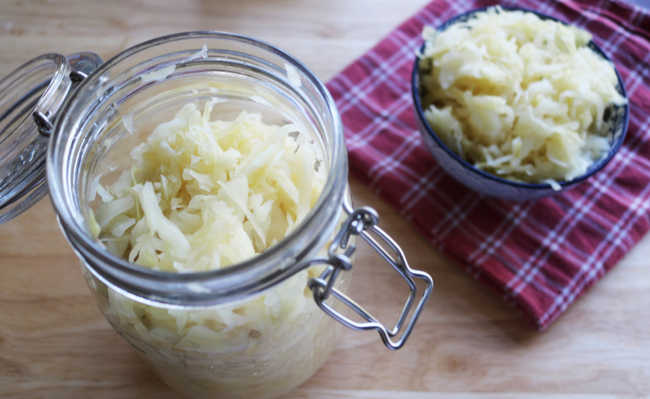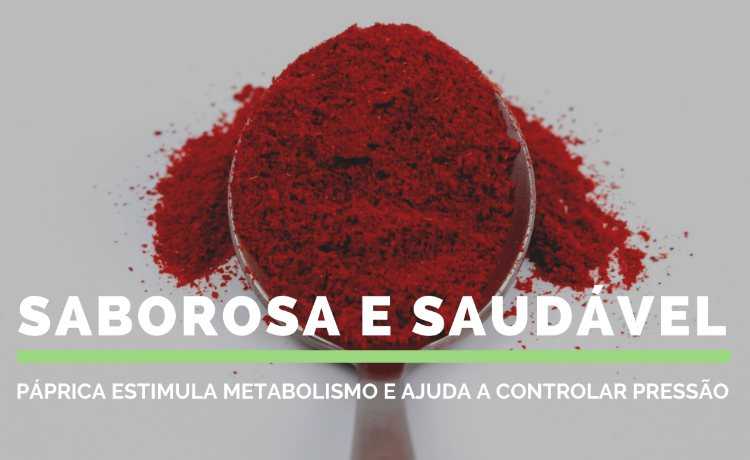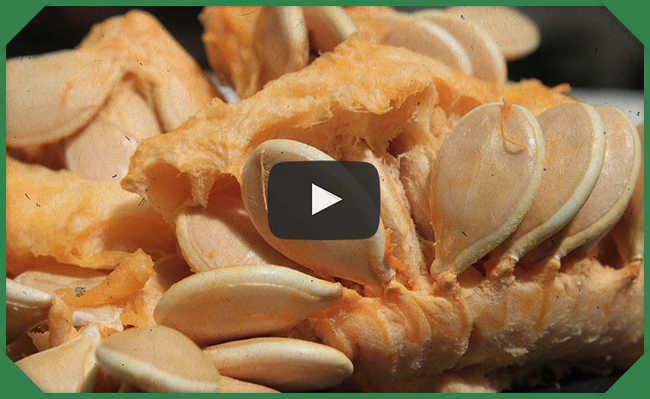Sauerkraut: benefits and how to do it
Sauerkraut recipe takes only two ingredients and provides excellent health benefits

"Make your own sauerkraut recipe" by Stephen Pearson (CC BY 2.0)
In Brazil, many people think that sauerkraut is a type of German sausage. But actually sauerkraut is a fermented probiotic food that contains only cabbage and salt (no sausage).
- Cabbage benefits
It is very beneficial for health and can be made at home. Although we associate sauerkraut with German culture, some studies claim that consumption of fermented cabbage began in China more than 2,000 years ago. At that time, fermentation was one of the methods used to prevent food from spoiling quickly.
Check out eight health benefits of sauerkraut and learn how to make an easy recipe.
Benefits
1. It is rich in nutrients
Each 142 grams contains:
- Calories: 27
- Fat: 0 grams
- Carbohydrates: 7 grams
- Fiber: 4 grams
- Protein: 1 gram
- Sodium: 39% of the Recommended Daily Intake (IDR)
- Vitamin C: 35% of the RDI
- Vitamin K: 23% of the RDI
- Iron: 12% of the IDR
- Manganese: 11% of the IDR
- Vitamin B6: 9% of the RDI
- Folate: 9% of the IDR
- Copper: 7% of the IDR
- Potassium: 7% of the IDR
- What is vitamin C and why is it important?
Sauerkraut's fermentation process is what differentiates it from raw or cooked cabbage, turning it into a probiotic food. All this is due to the action of microorganisms. Although people often think of bacteria as harmful “germs”, many microorganisms are essential for the body to function properly. Probiotics help to digest food, destroy disease-causing microorganisms, and produce vitamins.
- More than half of our body is not human
The microorganisms naturally present in cabbage begin the fermentation process by digesting the natural sugars and converting them into carbon dioxide and organic acids.
This makes the cabbage (already in the form of sauerkraut) more digestible by the human body, increasing the ability of the intestine to absorb vitamins and minerals (see studies about it here: 1, 2).
2. Improves digestion
The intestine is composed of more than 100 trillion microorganisms, which represents about ten times the total number of cells in the entire body (see study about it here: 3). The microorganisms present in sauerkraut act as a line of defense against harmful toxins and bacteria, improving digestion and general health (see studies about it here: 4, 5, 6). This improves the bacterial balance in the intestine after it has been disturbed by the use of antibiotics, and may even reduce or prevent diarrhea caused by antibiotics (see studies about it here: 7, 8, 9). Probiotic foods also help reduce intestinal gas, bloating, constipation, and symptoms of Crohn's disease and ulcerative colitis (see studies on this here: 10, 11, 12, 13).
However, different probiotic strains provide different advantages. Thus, consuming a wide variety of strains increases the range of health benefits. In this respect, sauerkraut is advantageous, some studies claim that a portion of sauerkraut can provide up to 28 different bacterial strains.
Like most other fermented foods, sauerkraut also contains a variety of enzymes, which help break down nutrients into smaller, more easily digestible molecules (see study on this: 14).
- Medicine for gases: 10 tips on how to eliminate gases
3. Improves immunity
About 70% of immune system cells live in the gut. This means that keeping your gut healthy is a prerequisite to staying away from disease, preventing the growth of harmful bacteria and increasing the production of natural antibodies (see studies on this here: 15, 16, 17, 18).
In addition, regular consumption of foods rich in probiotics, such as sauerkraut, can reduce the risk of infections such as colds and urinary tract infections (see studies about it here: 19, 20, 21, 22, 23).
If you get sick, regular consumption of foods rich in probiotics can help you recover faster and reduce your chance of needing antibiotics by about 33% (see studies on this here: 23, 24, 25).
In addition to being a rich source of probiotics, sauerkraut is rich in vitamin C and iron, two substances that contribute enormously to the maintenance of the immune system (see studies about it here: 26, 27, 28, 29).
- What are probiotic foods?
- What are prebiotic foods?
- Iron: importance and impacts of its extraction
- What are iron rich foods?
4. Helps you lose weight
Consuming sauerkraut regularly can help prevent weight gain. That's because, like most vegetables, the cabbage that sauerkraut is made from is high in fiber and low in calories. In this way, the body is satiated with a low calorie intake (see studies about it here: 30, 31, 32, 33).
In addition to preventing weight gain, apparently, sauerkraut helps to lose weight. Although the reasons are unclear, some studies have shown that sauerkraut reduces the amount of fat in the body (see studies about it here: 30, 31).
- 21 foods that help you lose weight with health
Several studies report that participants who received foods rich in probiotics or supplements lost more weight than those who received placebo (see studies here: 32, 33, 34).
Another study showed that purposefully superfed participants who were given probiotics gained about 50% less body fat than superfed participants who were given a placebo.
However, these results are not universal. Different probiotic strains can have different effects. Thus, more research is needed to determine the effectiveness of probiotic sauerkraut strains in weight loss.
5. Reduces stress and is good for the brain
Mood can affect what we eat, but the reverse is also true. Studies have shown that the type of bacteria present in the intestine may have the ability to send messages to the brain, influencing the way it functions and perceives the world (see studies here: 35, 36, 37).
Probiotics such as sauerkraut contribute to the creation of a healthy intestinal flora, help reduce stress, improve memory and symptoms of anxiety, depression, autism and even obsessive-compulsive disorder, also known by the acronym OCD (see studies about it here : 38, 39, 40, 41, 42).
By increasing the absorption of magnesium and zinc, it is great for brain health (see study about 43 here).
However, one must be aware that some compounds in sauerkraut can interact with monoamine oxidase inhibitors (MAOIs), a type of medication prescribed to treat depression, anxiety disorders and Parkinson's disease (see studies about it here: 44, 45) .
- Magnesium: what is it for?
- Magnesium chloride: what is it for?
- Your brain loves magnesium, but do you know it?
- Home-style and natural anxiety remedies
6. Reduces the risk of cancer
Cabbage, the main ingredient in sauerkraut, contains antioxidants and other beneficial plant compounds that can help reduce the risk of certain types of cancer.
Researchers believe these compounds can help reduce DNA damage, prevent cell mutations, and block cell overgrowth that normally lead to tumor development (see studies on this: 46, 47, 48).
- Antioxidants: what are they and in what foods to find them
The cabbage fermentation process can also create specific compounds that help to destroy precancerous cells (see studies on this here: 49, 50).
Certain carcinogens are believed to become carcinogens after being "activated" by specific enzymes. Two studies have shown that cabbage and sauerkraut juice can help prevent cancer from developing by reducing the production of these carcinogen activating enzymes (see studies on this here: 51, 52, 53).
In another study, researchers found that women who ate cabbage and sauerkraut from adolescence to adulthood had a reduced risk of breast cancer. Those who ate more than three servings a week had a 72% lower risk of breast cancer than those who ate less than 1.5 servings a week.
Another study in men showed that cabbage has similar effects on prostate cancer risk.
7. Good for the heart
Sauerkraut's probiotics and fibers help reduce cholesterol levels (see studies on this: 52, 53, 54, 55).
In addition, sauerkraut is one of the rare vegetable sources of menaquinone, more commonly known as vitamin K2. Vitamin K2 is believed to help reduce heart disease by preventing calcium deposits from accumulating in the arteries (see study here: 56).
- Does altered cholesterol have symptoms? Know what it is and how to prevent it
- Fiber-rich foods fight diabetes and high cholesterol
In one study, regular intake of foods rich in vitamin K2 was associated with a 57% lower risk of death from heart disease over the seven to ten-year study period.
In another study, women reduced their risk of heart disease by 9% for every 10 mcg of vitamin K2 consumed per day. To give you an idea, a cup of sauerkraut contains about 6.6 mcg of vitamin K2.
8. Strengthens bones
Vitamin K2 in sauerkraut plays an important role in bone health. It activates two proteins whose function is to bind calcium, the main mineral found in bones (see studies about it here: 57, 58).
A three-year study of postmenopausal women found that those taking vitamin K2 supplements had a slower age-related loss in bone mineral density.
- Menopause: symptoms, effects and causes
Likewise, several other studies have reported that taking vitamin K2 supplements reduced the risk of spine, hip, and non-vertebral fractures by 60-81%.
However, some of these studies used supplements to provide very high doses of vitamin K2. So it's not known whether the vitamin K2 you would get from eating sauerkraut alone would provide the same benefits.
how to make sauerkraut
Ingredients
- 1 medium green cabbage (preferably organic)
- 1 level tablespoon of non-iodized salt
- 2 cloves of garlic in pieces (optional)
Method of preparation
Set aside a 500-gram glass jar to hold the sauerkraut; a board; a kneader; a knife and a bowl to squeeze the cabbage.
Give all utensils you are going to use a quick wash with vinegar (this process prevents contamination by unwanted microorganisms) and do not wash them with water after using the vinegar. Discard the outer leaves of the cabbage and cut it into very thin strips (with a knife and board already washed with vinegar).
Once well cut into strips, squeeze the cabbage into the bowl by hand and spread the salt and garlic well. After this step, gradually put the cabbage in the glass pot and squeeze it well with the kneader, until it releases water.
For each portion of cabbage placed in the glass jar, mash it well, until, after pouring the entire amount of cabbage into the jar, it is completely covered by the water you have released. Cover the glass slightly loosely so that fermentation gases can escape. Leave it for three days to a week outside the refrigerator at room temperature. The hotter the temperature, the faster the fermentation.
Do not consume your sauerkraut if it has a dark appearance or fungal growth.
How to buy sauerkraut?
Sauerkraut can be found in common markets. But try to avoid pasteurized versions, as this process kills beneficial probiotics. Refrigerated varieties are less likely to be pasteurized, but check the label to be sure. Also avoid those that contain preservatives, which can lower your probiotic count.
- Preservatives: what are they, what types and dangers
Avoid added sugars. Sauerkraut should only contain two basic ingredients: cabbage and salt. Some varieties can also add extra vegetables, but avoid those that add sugar or anything else to the mix. To make sure you get all the benefits of sauerkraut, do it yourself.
Adapted from Alina Petre - Healthline










